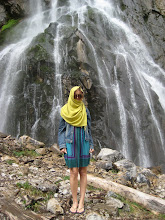Abkhazia is one of two breakaway regions of Georgia.
It is approximately 8,600 km2 and is situated in the north-western corner of Georgia with the Black Sea to the south-west and the Caucasus mountains and Russia to the north-east. Abkhazia has been fighting for independence from Georgia since the collapse of the USSR in 1991. Abkhazia claimed their independence in 1994 after a 13-month war lasting from 1992 to 1993. Internationally this is recognized by Russia, Nicaragua, and as of 2 weeks ago, Venezuela. An economic embargo is in effect making Abkhazia almost totally isolated with the exception of Russia which maintains a border crossing.
In 1991, the population in Sukhumi, the capital of Abkhazia was 550,000. In 2005 it was estimated at 200,000. Today, there are even fewer people living in the area.
Major languages spoken: Russian, Georgian, and Abkhaz
Major religions: Christianity, Islam
According to MOH estimates approximately 50% of the population are unemployed though this may be a modest estimate.
Natural resources: agricultural, primarily citrus fruits, tobacco, tea, timber; some coal, hydroelectric power
In 1996, MSF started their support in Abkhazia for regular tuberculosis and in 2001 a multi-drug resistant tuberculosis (MDR-TB) project was opened. It’s in this context that I will be working for the next 6.5 months as the adherence coordinator in Sukhumi. Currently, there are less than 50 people enrolled in this program. The treatment of MDR-TB is between 21 to 24 months, has many and severe medication side effects and requires DOT (direct observed therapy) for the duration of treatment which means patients are required to come into an ambulatory point 1-2 times per day 6 days per week. Yep, that's right twice daily 6 days per week for 2 years! Understandably, adherence with treatment is very difficult.
Thursday, September 24, 2009
Subscribe to:
Post Comments (Atom)

No comments:
Post a Comment